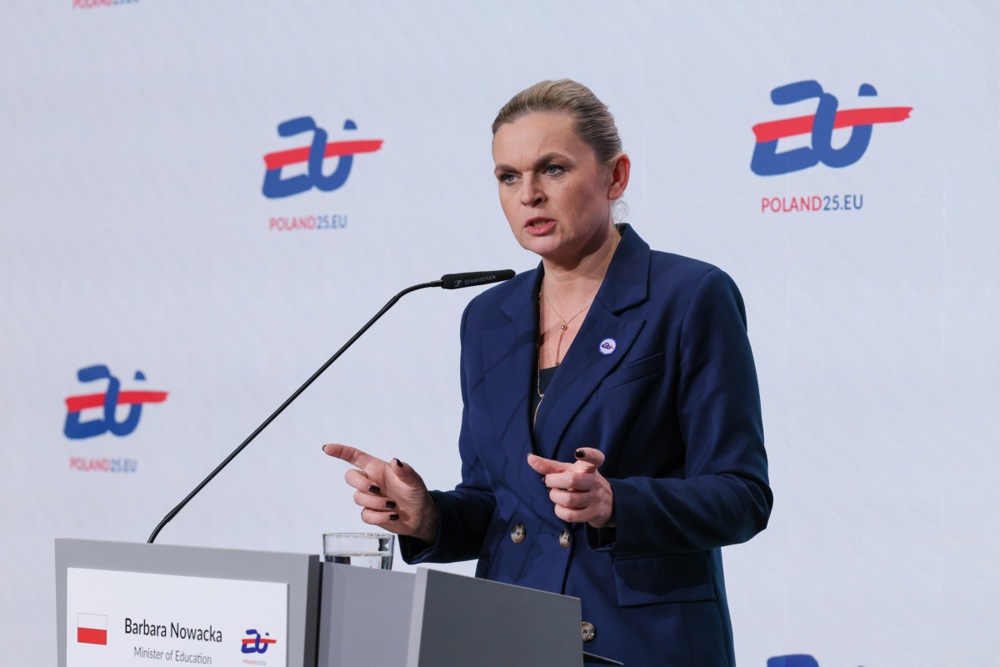The Russian authorities in Smolensk have ordered the removal of symbols depicting Polish military awards at the Katyń Memorial.
The monument commemorates the thousands of Polish officers executed by the Soviets in 1940.
In April-May 1940 the Soviet authorities, acting on the direct orders of Stalin, executed around 22,000 Poles, mostly officers, who had been captured during the Soviet occupation of eastern Poland.
The Soviet Union denied responsibility for decades, claiming the murders had been carried out by the Germans, but finally owned up to the atrocity during the reign of Mikhail Gorbachev, the last leader of the Soviet Union from 1985 to the country’s dissolution in 1991.
In the past two decades, though, Russia has been claiming that Katyń was carried out as retaliation for the mistreatment of Soviet troops during the Polish-Bolshevik war in 1920.
The Smolensk regional council sent a letter to the Russian prosecutors office that demanded the removal of the symbols at the Katyn cemetery. On August 18, an order was placed instructing the memorial’s administrators to take the action.
The prosecutors justified the action by claiming that the Polish symbols violated regulations on cultural heritage and the commemoration of the Soviet victory in the Second World War.
Poland’s Institute of National Remembrance (IPN), the State body responsible for investigating war and Communist crimes which had been led by Karol Nawrocki before his election to the Polish presidency, slammed the move, calling it “devastation of the cemetery”.
“Any country wishing to call itself civilised ought to treat burial sites as sacred and inviolable,” the IPN said in a statement.
The Polish institution also denied claims by the regional authorities in Smolensk that Poland has undertaken the “mass destruction of graves and monuments of Soviet liberating soldiers” on its own territory.
While the IPN noted that those “soldiers cannot be called liberators”, given that they brought Poland under Soviet control, it pointed out that Poland has not destroyed any graves of fallen Red Army soldiers and, in fact, works to protect and restore them.
Poland has, though, in recent years taken down dozens of Soviet monuments commemorating the Red Army as part of its campaign to remove monuments honouring occupiers.
In May this year, the same Polish military symbols challenged by the Russian in Katyń were removed from a nearby cemetery in Mednoye, another burial ground for Polish victims of Soviet massacres.
That incident prompted protests from Poland, with the foreign minister Radosław Sikorski saying it was part of Moscow’s attempts to promote “historical lies” about the war.
In 2022, Poland lodged protests against the removal of Polish flags from the Katyn and Mednoye cemeteries. In 2024 Poland’s foreign ministry went on record to correct a number of allegedly false and revisionist claims that Russian President Vladimir Putin has regularly made about the history of the Second World War.
Russia’s official historical narrative is that it did not enter the war until 1941, when the Soviet Union was invaded by Nazi Germany. That ignores the fact that Moscow had previously been allied with Berlin and that the two had invaded Poland in league with one another in September 1939.
Smoleńsk is also the site of the air tragedy in which the then-president of Poland Lech Kaczyński and scores of other Polish officials died in 2010 when on their way to a commemoration of the Katyń massacre.
There have been tensions between Poland and Russia over the investigation of that air disaster with some in Poland claiming it may have been caused by Russia.
The relations between Poland and Russia have been frozen since the full scale Russian invasion of Ukraine in 2022. Poland backs Ukraine and acts as a humanitarian and military hub for the Ukrainians since the start of that war.





